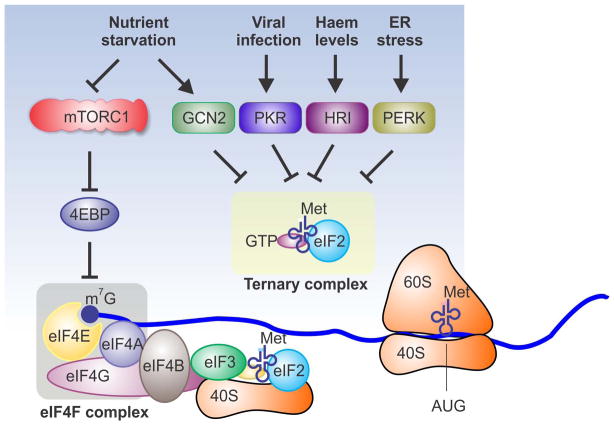Figure 1.
Multiple stress signals converge on initiation factors and inhibit global protein synthesis. Cap-dependent translation initiation requires cap binding, eIF4F complex assembly (light grey square), and ternary complex formation (light yellow square). Nutrient signalling mTORC1 controls eIF4F complex formation by phosphorylating 4EBP, which releases eIF4E for cap binding. Nutrient starvation not only inhibits the mTORC1 signalling pathway, but also triggers GCN2 kinase activity. GCN2 phosphorylates eIF2α that inhibits ternary complex formation. In addition to the GCN2 kinase, other kinases integrate many stress conditions by phosphorylating eIF2α, forming an integrated stress response targeting translation initiation.

